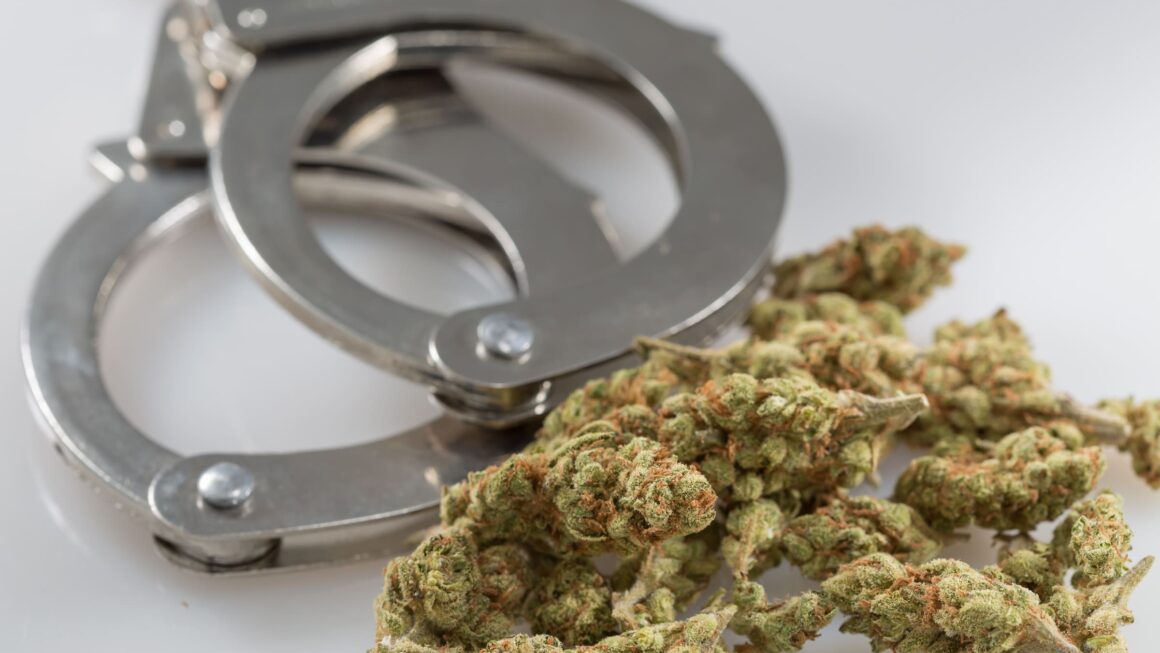A pro-legalization Florida lawmaker has filed a bill to amend state law to codify that the public use of marijuana is prohibited.
Rep. Alex Andrade (R)—who has voiced support for removing cannabis from the federal Controlled Substances Act (CSA) and earned an “A” grade from NORML—introduced the public smoking and vaping legislation on Thursday.
Under the proposal, state statute on the use of tobacco in public would be revised to incorporate cannabis, making it unlawful to smoke or vape in any public space.
A public space would be defined as place “to which the public has access, including, but not limited to, streets; sidewalks; highways; public parks; public beaches; and the common areas, both inside and outside, of schools, hospitals, government buildings, apartment buildings, office buildings, lodging establishments, restaurants, transportation facilities, and retail shops.”
The legislation specifies that the prohibition on public smoking “does not apply to the smoking of unfiltered cigars.”
Given the bill sponsor’s support for cannabis reform, it seems likely this is an attempt to get ahead of future criticism of broader legalization proposals, as Gov. Ron DeSantis (R) and other conservative officials have frequently argued that ending prohibition would equate to a Wild West of public marijuana smoking.
Andrade said earlier this year that embracing cannabis reform is a way for the Republican party to secure more votes from young people.
“Mainly, I think it’s just keeping on trend with just being the most authentic with our policy message,” he said. “You know, the vast majority of Americans don’t have Reefer Madness worries or concerns. They view it as something that has some kind of medical benefit, and I think that it’s the most authentic position to say we should treat this like the product that it is, instead of fear mongering about it continually.”
Last session he sponsored legislation to exempt military veterans from medical cannabis patient ID card registration fees. It unanimously passed the House but was killed in the Senate.
Andrade’s new bill comes at a critical time for a campaign that’s again seeking to put adult-use legalization on the 2026 ballot.
Relatedly, Smart & Safe Florida recently filed a lawsuit with the state Supreme Court, alleging that officials are violating election laws by stalling a required review process for the measure without justification.
With 662,543 signatures verified by the secretary of state’s office so far, that’s more than triple the 220,016 required to prompt the review. The campaign reached that initial threshold over the summer and notified state officials, but it says it received no response.
Attorneys for the campaign also noted that Smart & Safe Florida is involved in other litigation related to allegations that the state is taking “unlawful” steps to force the invalidation of about 200,000 voter signatures it has submitted. Officials claim the signatures are void because the petitions voters signed didn’t include the full text of the initiative.
This is the campaign’s second run at the ballot. They successfully secured ballot placement for a 2024 version of the initiative–and a majority did vote to pass it, but not enough to meet the state’s steep 60 percent threshold to approve a constitutional amendment.
In the background of this lawsuit, a federal judge in August delivered a win to Smart & Safe Florida—granting “complete relief” from provisions of a law the governor signed to impose other serious restrictions on signature gathering.
While the law DeSantis signed in May wasn’t directly targeted at the cannabis initiative, there’s been concern among supporters that it could jeopardize an already complex and costly process to collect enough signatures to make the ballot. That’s because it would block non-residents and non-citizens from collecting signatures for ballot measures.
In March, meanwhile, two Democratic members of Congress representing Florida asked the federal government to investigate what they described as “potentially unlawful diversion” of millions in state Medicaid funds via a group with ties to DeSantis. The money was used to fight against a citizen ballot initiative, vehemently opposed by the governor, that would have legalized marijuana for adults.
The lawmakers’ letter followed allegations that a $10 million donation from a state legal settlement was improperly made to the Hope Florida Foundation, which later sent the money to two political nonprofits, which in turn sent $8.5 million to a campaign opposing Amendment 3.
The governor said in February that the newest marijuana legalization measure is in “big time trouble” with the state Supreme Court, predicting it will be blocked from going before voters next year.
“There’s a lot of different perspectives on on marijuana,” DeSantis said. “It should not be in our Constitution. If you feel strongly about it, you have elections for the legislature. Go back candidates that you believe will be able to deliver what your vision is on that.”
“But when you put these things in the Constitution—and I think, I mean, the way they wrote, there’s all kinds of things going on in here. I think it’s going to have big time trouble getting through the Florida Supreme Court,” he said.
The latest initiative was filed with the secretary of state’s office just months after the initial version failed during the November 2024 election—despite an endorsement from President Donald Trump.
Smart & Safe Florida is hoping the revised version will succeed in 2026. The campaign—which in the last election cycle received tens of millions of dollars from cannabis industry stakeholders, principally the multi-state operator Trulieve—incorporated certain changes into the new version that seem responsive to criticism opponents raised during the 2024 push.
For example, it now specifically states that the “smoking and vaping of marijuana in any public place is prohibited.”Another section asserts that the legislature would need to approve rules dealing with the “regulation of the time, place, and manner of the public consumption of marijuana.”
—
Marijuana Moment is tracking hundreds of cannabis, psychedelics and drug policy bills in state legislatures and Congress this year. Patreon supporters pledging at least $25/month get access to our interactive maps, charts and hearing calendar so they don’t miss any developments.![]()
Learn more about our marijuana bill tracker and become a supporter on Patreon to get access.
—
Last year, the governor accurately predicted that the 2024 cannabis measure from the campaign would survive a legal challenge from the state attorney general. It’s not entirely clear why he feels this version would face a different outcome.
While there’s uncertainty around how the state’s highest court will navigate the measure, a poll released in February showed overwhelming bipartisan voter support for the reform—with 67 percent of Florida voters backing legalization, including 82 percent of Democrats, 66 percent of independents and 55 percent of Republicans.
However, the results conflict with another recent poll from the Florida Chamber of Commerce, a proactive opponent of legalization, that found majority support for the reform among likely voter (53 percent) but not enough to be enacted under the 60 percent requirement.
Another poll of Florida Republican voters showed just 40 percent of that demographic said they’d vote in favor of the legalization proposal.
Separately, a Florida GOP senator claimed recently that the legalization campaign “tricked” Trump into supporting the 2024 measure by misleading him and the general public about key provisions.
Ahead of the election, Trump said last September that he felt Amendment 3 was “going to be very good” for the state.
Before making the comments, Trump met with the CEO of Trulieve, Kim Rivers, as well as with a GOP state senator who is in favor of the reform.
Meanwhile, Florida medical marijuana officials are actively revoking the registrations of patients and caregivers with drug-related criminal records. The policy is part of broad budget legislation signed into law earlier this year by DeSantis. The provisions in question direct the state Department of Health (DOH) to cancel registrations of medical marijuana patients and caregivers if they’re convicted of—or plead guilty or no contest to—criminal drug charges.






